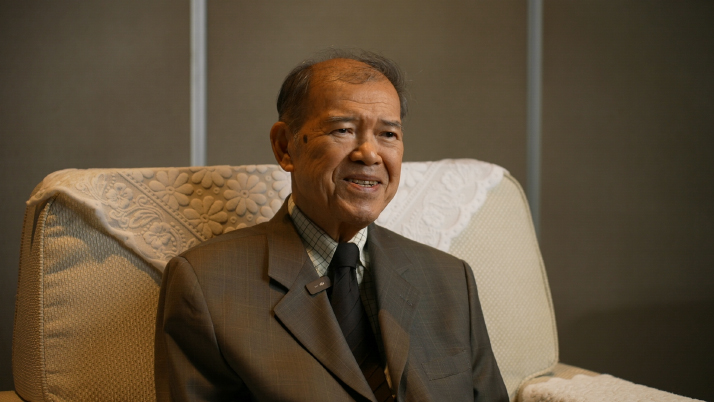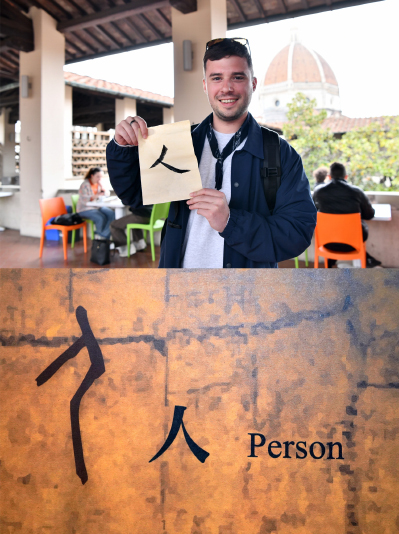| Voice |
| East meets west | |
|
|
 Supachai Panitchpakdi
Serving as director general of the World Trade Organization (WTO), headquartered in Geneva, Switzerland, from September 2002 to August 2005, Supachai Panitchpakdi made history as the organization's first Asian leader. In an exclusive interview with Beijing Review reporter Zhao Wei on the sidelines of the third Oriental Civilization Dialogue, a cross-cultural dialogue event hosted by the Mencius Foundation in Chengdu, capital of China's southwestern province of Sichuan, in early April, Panitchpakdi shared his views on the importance of cultural exchange between East and West and how these interactions can lead to a deeper understanding between diverse societies. During their conversation, Panitchpakdi also touched on the relevance of ancient Chinese philosophies in shaping a shared future for all of humanity. Edited excerpts of the interview follow: Beijing Review: What do you consider to be the most significant impact of cross-cultural dialogue and exchange, particularly in terms of fostering mutual understanding and collaboration between East and West? Supachai Panitchpakdi: Cross-cultural dialogue is crucial because today, more than ever, we are drifting apart instead of coming together to seek collective action, all the world, for all kinds of global problems like inflation, lack of food, physical warfare, trade tensions, etc. Instead of leveraging our diverse perspectives to find common solutions, some countries seem more focused on their own interests. This approach may not yield the constructive forces needed to address these worldwide problems. Growing up in Asia and later studying in Europe, I observed distinct approaches to problem-solving. Asians often adopt a philosophical, humane approach that emphasizes personal and family values. This results in flexible and cautious solutions which may seem slow-paced to Western eyes. We have an extended family system, community-based cultures and long histories. Meanwhile, the West has its own history and technological acumen; they value hard work and competition as key drivers of market capitalism. However, competition sometimes goes beyond established rules. During my time at the WTO, I noticed some major countries occasionally disregarding rule books. Fast solutions are needed during urgent situations, but structural and social problems require careful deliberation over time. By combining both sides, the philosophical humanity with technological competitiveness, coexistence is possible. Therefore, we should constantly engage in cross-cultural discussions. Chinese President Xi Jinping proposed the Global Civilizations Initiative (GCI) in March 2023, which calls for respecting the diversity of civilizations, advocating the common values of humanity, valuing the inheritance and innovation of civilizations, and strengthening international people-to-people exchange and cooperation. How do you believe this specific initiative can positively impact global relations and create better understanding and cooperation among different civilizations? President Xi's proposal, which I fully endorse, is praiseworthy. His goal is to constructively devise a new global governance solution. In my book on the Belt and Road Initiative (BRI), penned four years ago, I suggested a similar approach: prioritizing development over mere markets, competition and technological change in the pursuit of globalization. (The BRI is a China-proposed initiative to boost connectivity along and beyond the ancient Silk Road routes—Ed.) Dialogue on cross-cultural civilization has significant global implications. In this age of soft-power diplomacy, understanding each other's cultural and heritage backgrounds is vital for reducing misunderstandings that often lead to conflict. The rise of soft power can be seen in increased personal interactions among world leaders and enhanced social contact through channels like social media, all contributing toward improved mutual comprehension. I am convinced that the United Nations' Agenda 2030 aligns with President Xi's vision as both emphasize people, planet, prosperity, partnership and peace, which are key elements required for successful global civilization dialogues. During my time at the UN and the WTO, I stressed equal participation by all countries. The GCI is an important proposal warranting serious consideration by global leadership. (The Agenda 2030, also known as the 2030 Agenda for Sustainable Development, is a comprehensive plan of action adopted by UN member states in September 2015. It consists of 17 Sustainable Development Goals aimed at addressing a wide range of global challenges, including poverty, inequality, climate change, environmental degradation, peace and justice—Ed.)  (Above) A Chinese culture aficionado holds up the Chinese calligraphy of the character ren (meaning "person") during an event hosted by the Confucius Institute at the University of Florence in Italy on April 13, 2023 The ancient oracle bone script variant of ren as on display at the National Museum of Chinese Writing in Anyang, Henan Province, on April 19, 2023 (XINHUA)
In your 2020 book on the BRI, you say global governance is in dire need of the initiative's benevolent approach, drawing on the teachings of the ancient Chinese philosopher Mencius (372-289 B.C.). How did you come to recognize the relevance of this millennia-old wisdom in contemporary global development? Additionally, what opportunities does the BRI present to countries along its route? Mencius said people should always prepare themselves for adversity; otherwise they would be missing the right approach. Thus, it's crucial to anticipate potential negative outcomes. The BRI arose during a crucial period of global reconnection. The unity that marked the 1980s and 1990s began to falter following the Great Recession of 2008-09, which originated from a severe crisis in the U.S. financial system and caused widespread damage globally. China didn't just propose the BRI; it invited worldwide participation. This infrastructure development potential could enhance connections within Asia and beyond. True globalization isn't about force or constant rule imposition; it's about unity through mutual benefits and collective betterment. Infrastructure investment is the key as it enables digital connectivity along with physical transportation logistics like roads and railways, establishing a robust foundation for future cooperation benefiting all involved nations. The BRI reflects not only China's interests but also those of participating countries. Copyedited by Elsbeth van Paridon Comments to zhaowei@cicgamericas.com |
|
||||||||||||||||||||||||||||
|